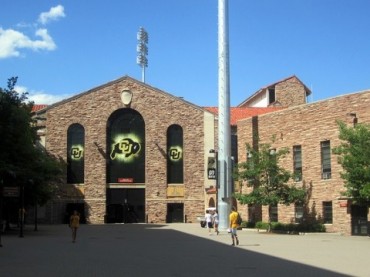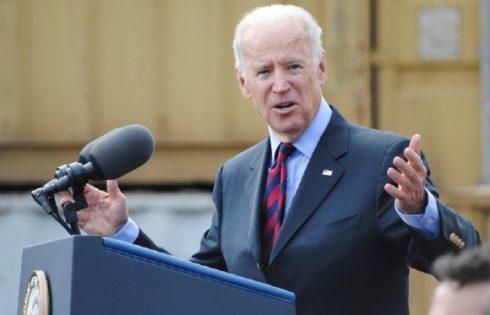
A recently released social climate survey has found that there are seven times as many Democrat professors as Republican ones at the University of Colorado – Boulder.
Specifically, 5.7 percent of CU Boulder faculty members who took the survey identified as Republican, while 40.6 percent of professors stated they’re Democrats. The rest either identified as Independent (25.2 percent), other (10.7 percent) or declined to state (17.9 percent).
In total across the four campuses within the University of Colorado system, only 9 percent of faculty identified as Republican while nearly 42 percent identified as Democrat, the survey found. The rest either identified as Independent (24 percent), other (7.8 percent) or declined to state (17.3 percent).
A total of 9,301 participants took the survey – or more than 12 percent of the University of Colorado community, according to the pollsters who administered the University of Colorado Social Climate Survey, launched last year by the University of Colorado Board of Regents.
Specifically, the pollsters said the survey was taken by 1,984 faculty members, or 13 percent of total faculty; 2,247 staff, or 28 percent; and 5,070 students, or 10 percent of the student body.
When asked how they’d describe their political philosophy, nearly 60 percent of the faculty described themselves as “liberal,” while only about 13 percent called themselves “conservative.” About 14 percent said they were moderates, while the rest claimed “other.”
The survey was launched last fall by concerns among some Regents that the system’s academics are heavily influenced by left-leaning scholars, and that a diversity of opinions – especially conservative ones – are not allowed to flourish. They made those claims based on a large swath of anecdotal evidence.
For Regent Sue Sharkey, a Republican, the survey confirmed there is reason for alarm.
“Where is the diversity in our political affiliation or political philosophy among faculty?” Sharkey said, reports the Daily Camera. “That is a really small number, so that’s a concern. And the same with our students. As a Republican, that concerns me.”
When it came to students systemwide, 17.1 percent identified as Republican while 28.2 said they were Democrats, and coming in at first place – nearly 30 percent described themselves as Independent.
In addition to the flagship Boulder campus, the system includes the University of Colorado, Colorado Springs; the University of Colorado, Denver; and the Anschutz Medical Campus.
The survey found that most students felt the four colleges offered a “respectful learning environment” and that professors are “tolerant of diverse opinions in the classroom.”
Administrators touted these results in a campus press release, saying: “The University of Colorado has a tolerant, respectful social climate … though some areas present opportunities for improvement.”
Nevertheless, the survey found that “although in the minority, significant numbers of students, faculty, and staff, particularly students on the Boulder campus, disagreed with the premise that they are respected regardless of their political affiliations and political philosophies.”
When asked if they’ve had professors who used class time to express their own social or political beliefs completely unrelated to the subject of the course, 3 percent of students systemwide said frequently, 18.3 percent said sometimes, 35 percent said rarely, and the rest replied never.
Asked whether the University of Colorado has diversity among its students, faculty and staff when it comes to political affiliation, 65 percent of students agreed, while only 44 percent of the faculty did. But when the question was narrowed to ask specifically about whether there is diversity among professors when it comes to party affiliation, only 49 percent of students said yes, while 44 percent of faculty did.
As a result of the survey, regents are “asking the campuses and system administration to analyze the data and report on any efforts being made to address findings of concern,” CU officials state.
Meanwhile, to counter the fact that the faculty heavily leans liberal, CU Boulder has created a Visiting Scholar in Conservative Thought and Policy program.
Jennifer Kabbany is associate editor of The College Fix. ( @JenniferKabbany )
Like The College Fix on Facebook / Follow us on Twitter
IMAGE: Wally G./Flickr






Please join the conversation about our stories on Facebook, Twitter, Instagram, Reddit, MeWe, Rumble, Gab, Minds and Gettr.